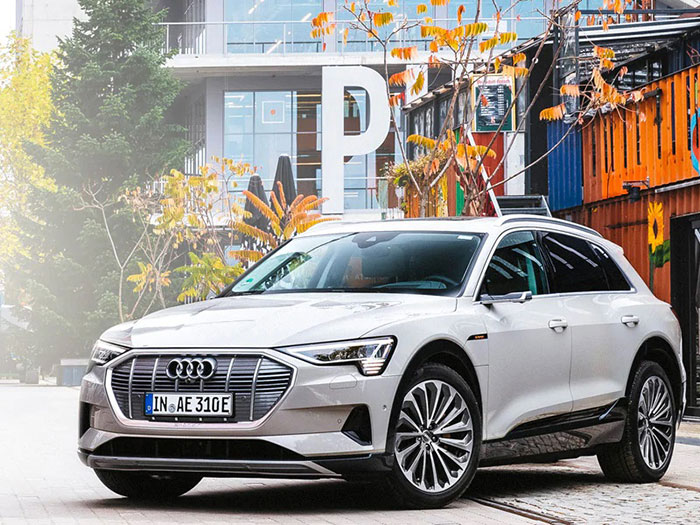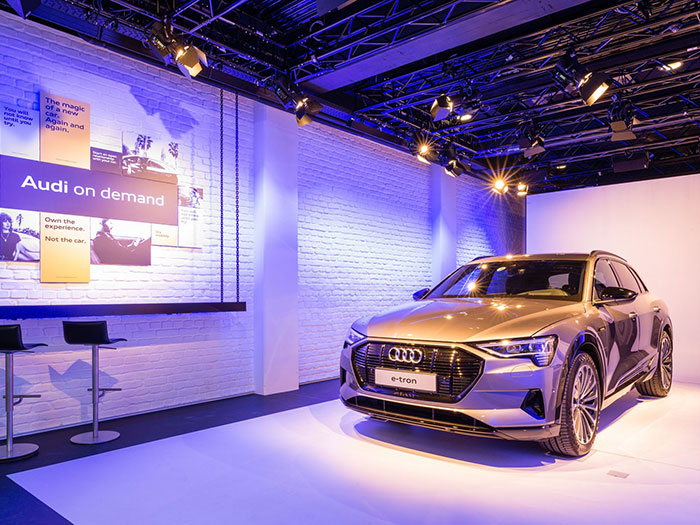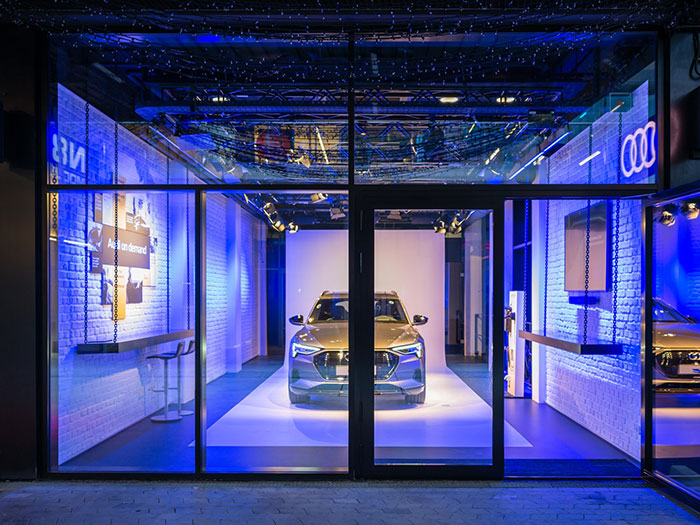Werksviertel - the perfect ecosystem to test the mobility of tomorrow
Sharing instead of owning: in Munich’s Werksviertel-Mitte district, Audi is developing the mobility of the future with its “Audi on demand” service, the first step in its ambitious vision for mobility.
The Munich Werksviertel district, also known as the factory district, offers a practical insight into the mobility of tomorrow. It offers spaces for cultural activities, working, and going out — all with an industrial flair, and all sustainable and innovative. The shared goal of the “settlers” — as the renters here are called — is access to networked, digital and sustainable mobility. Audi is also a strong proponent of sustainable mobility.
What’s going on in the Werksviertel district is “extremely passionate and extremely visionary,” says Horst Hanschur, Head of Sales Strategy and Business Development at Audi. “This is how we imagine the cities of the future. The people living here are young urbanites with very typical mobility needs, as well as B2B customers who are travelling for business and want to live sustainably”.
The perfect ecosystem

Werksviertel is a perfect ecosystem for Audi to test out new digital and sustainable mobility offerings and develop an innovation hub through Audi Business Innovation (ABI), a subsidiary of AUDI AG. “Audi on demand” is the first of many innovative projects planned by Audi in the Werksviertel district.
The area belongs to the family of Werner Eckart, heir to a famous food manufacturing company which had a large factory in the district. Since the 1990s, Werksviertel has undergone a major transformation. The industrial charm of the old factory is still felt, and the new character of the area draws inspiration from its history. Werner Eckart designed the pioneering “settler” concept as a way of establishing a community that makes shared decisions and creates innovative and sustainable projects.
On demand mobility

Audi has opened an innovative pop-up store in the WERK 3 building, where it provides information about electric mobility and offers the Audi on demand service — a mobility concept that allows users to rent an Audi for anywhere from 1 day to 28 days. With this service, Audi is making itself more accessible and thinking in terms of user needs: in the future, owning a car won’t matter — mobility itself will.
Over a period of two years, the store will also play host to other Volkswagen Group manufacturers. Audi will start things off, followed by SEAT and Volkswagen. “We are excited that we will be the first to offer mobility as a service in the Werksviertel district with an all-electric premium product like the Audi e-tron”, explains Hanschur.
Freeing up the city
The newly developed app MOBIKO is compatible with the Audi on demand service. It allows employers to make a flexible, digital mobility budget available to their employees — both for their commute and their leisure time — as a benefit. The ultimate objective of this project is to create a shared digital fleet.
Nico Gropper, Head of Business Innovation at ABI, explains why: “The number of cars, and the subsequent lack of space in major cities, is becoming more and more of a problem. So we need to react by offering new, sustainable, urban solutions that make life in the city better”. This led to the idea of an intelligent fleet to reduce the number of cars on inner city roads, free up parking spots and create more space.
An accessible service

With Werksviertel’s culture of “open feedback,” Audi hopes to collect valuable feedback about the mobility of the future and how it can be designed so that everyone can benefit. The community has a clear opinion on the subject: they want limited parking spaces in the area so that people have more space.
And, above all, everything should be wheelchair accessible — so that everyone has access to mobility. “The chance to have an open discussion, to offer mutual help, to evaluate and improve the products from both perspectives, and to continue developing them — it’s absolutely unique. I am sure that we will make faster progress as a result”, Hanschur says with enthusiasm.
Mobility scenarios
The Werksviertel district sees different target users overlap and a number of mobility scenarios. Commuters, renters, hotel guests, concert visitors — they are all mobile, and they all want to get from A to B. Audi wants to make that happen in a way that is intelligent, networked, and sustainable. “The special laboratory situation in the area is very exciting — we want to see how a new mobility service works and what the demand is like”, Hanschur concludes.
Source: AUDI AG
